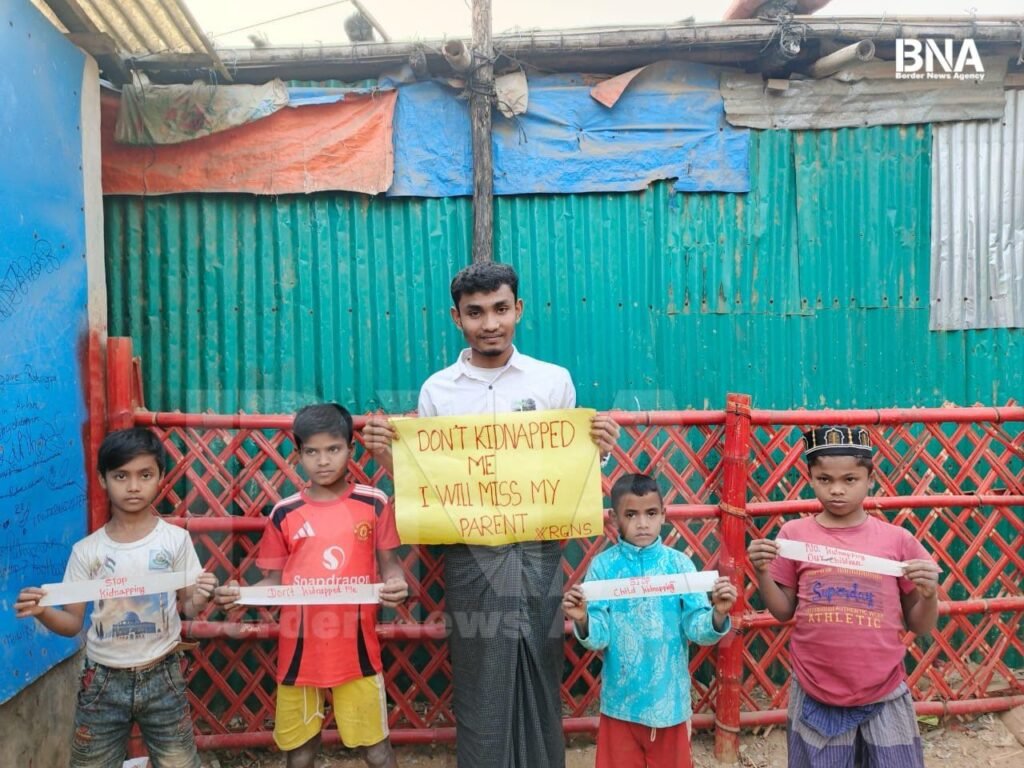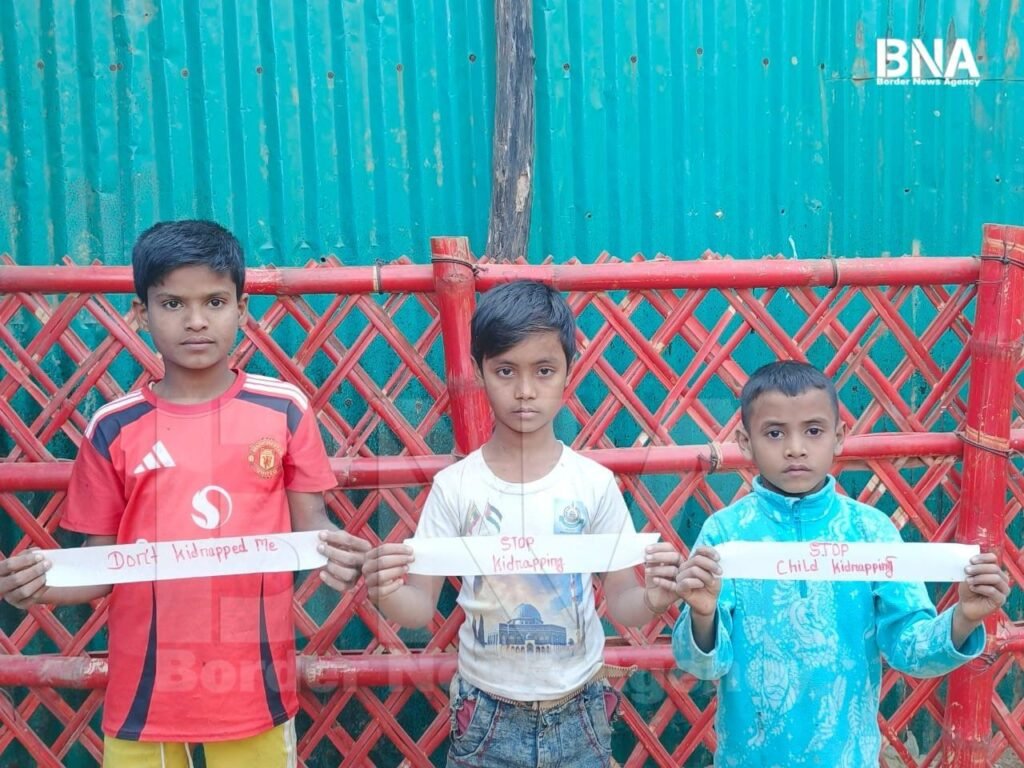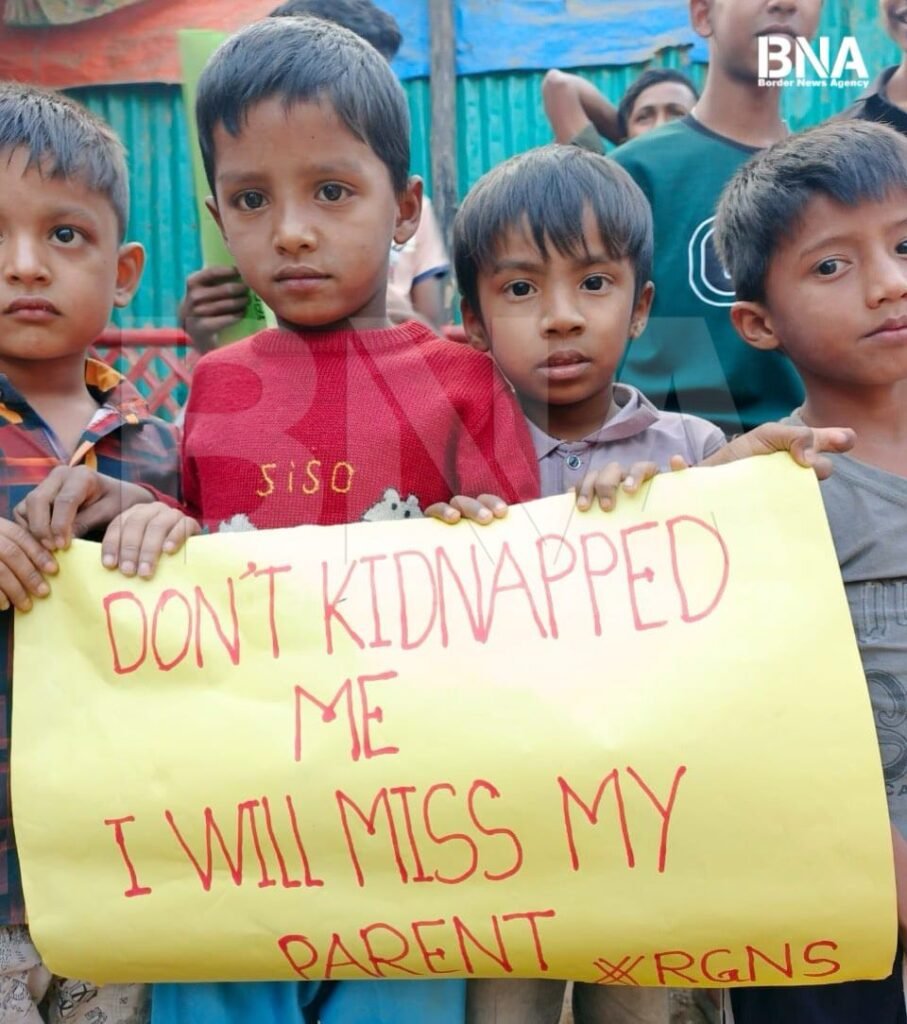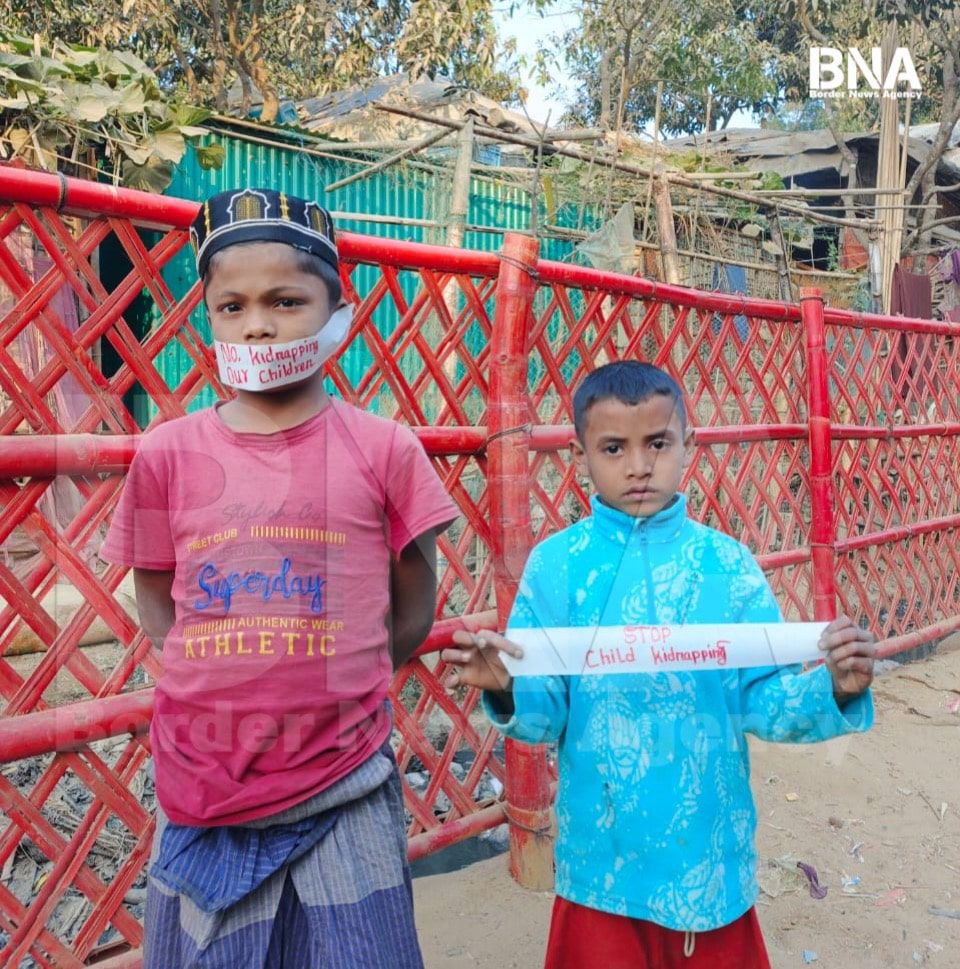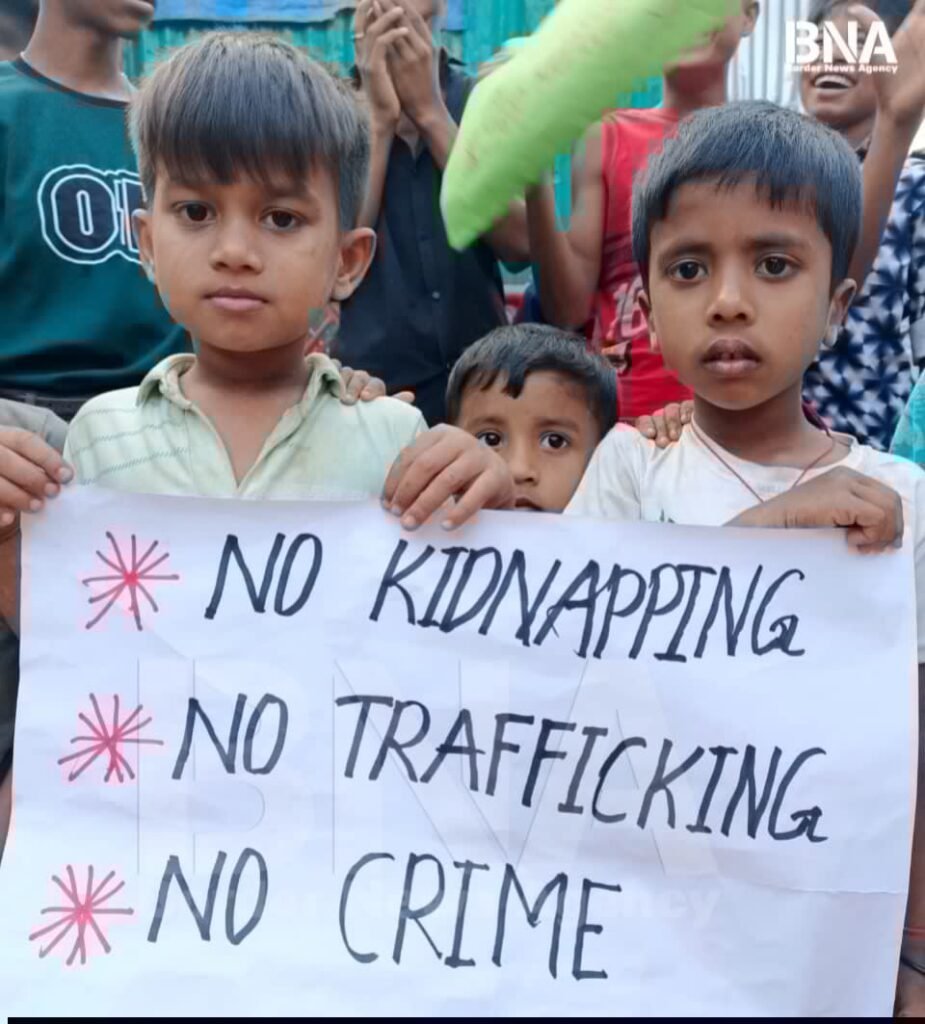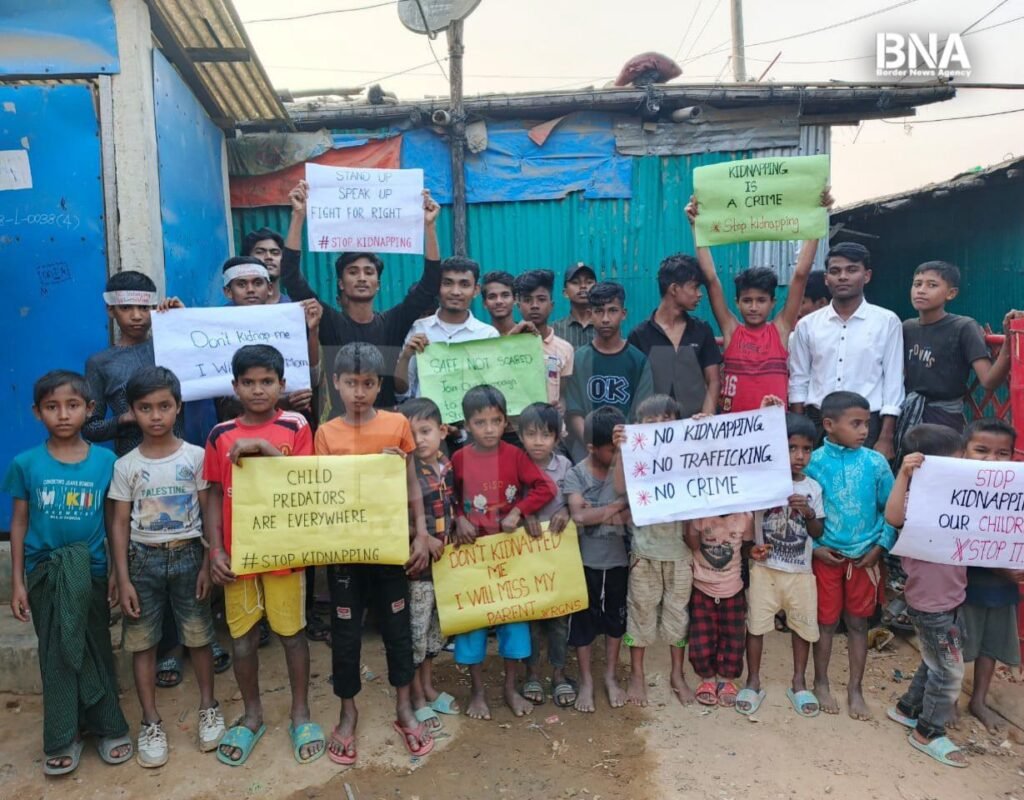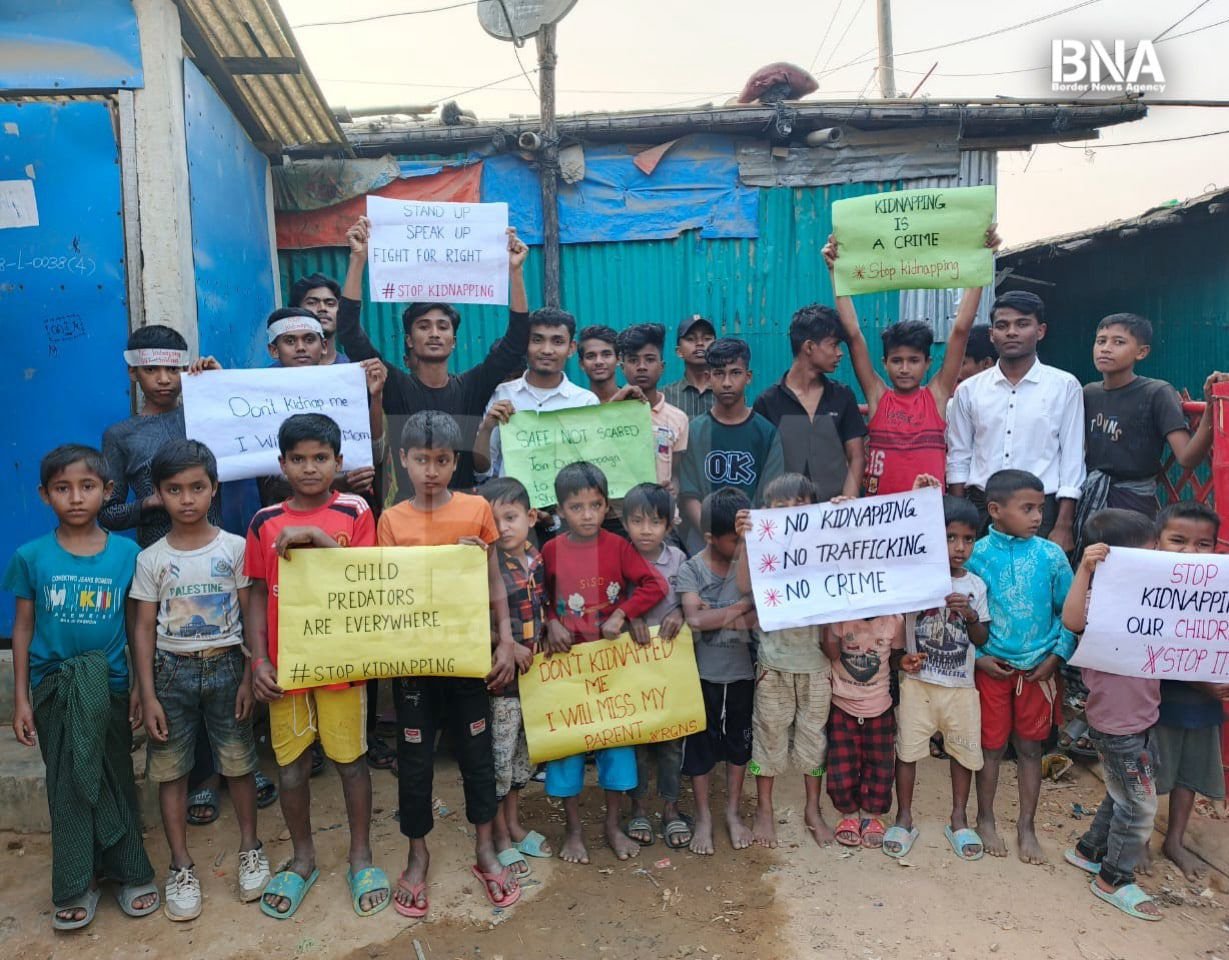Cox’s Bazar, Bangladesh – Kidnapping and human trafficking have become a growing crisis in the Rohingya refugee camps, with cases rising daily and leaving families in fear. Many young men and children are disappearing, falling into the hands of traffickers who exploit the vulnerable. Parents live in constant distress, uncertain whether their loved ones will return.
In response, the Rohingya Green Nature Society (RGNS), a youth-led volunteer group, has launched a campaign to raise awareness and push for urgent action. They stress that silence is not an option and call on leaders, organizations, and authorities to take immediate steps to protect the community.
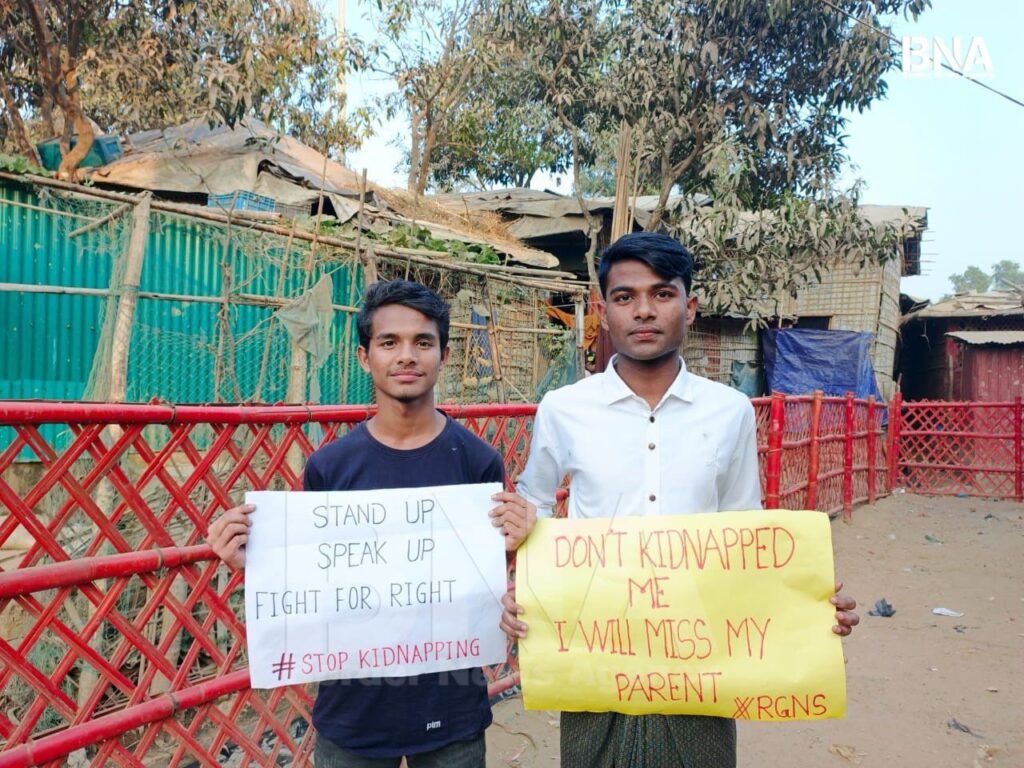
Lack of strong security measures has made the camps unsafe, allowing criminal networks to thrive. Many refugees feel helpless as kidnappers continue to target them. The RGNS campaign aims to educate families on the dangers of human trafficking, encourage vigilance, and demand stronger security enforcement.
The group urges law enforcement to take strict action against traffickers and ensure justice for the victims. They believe that only through unity and collective action can the community combat these crimes and create a safer future for Rohingya refugees.
The Rohingya refugees in Bangladesh fled Myanmar following brutal military crackdowns beginning on August 25, 2017. During this period, the Myanmar military’s clearance operations in the Maungdaw region led to the destruction of 362 villages and forced over 680,000 Rohingya to flee their homes, according to a March 2018 report by Human Rights Watch (HRW). The survivors of these atrocities now face continued persecution in their supposed places of refuge.
Human rights organizations and community leaders have called for immediate action to address this crisis. They are urging the Bangladesh government, international agencies, and humanitarian groups to strengthen security measures in the camps, crack down on trafficking networks, and provide better support for victims and their families.
The Rohingya people, who have already endured unimaginable suffering, are now trapped in a cycle of violence and fear. Without decisive action, the safety and dignity of one of the world’s most vulnerable communities remain at grave risk.
The Border News Agency interviewed several refugees living in the camps, and the majority expressed a strong desire to return to their homeland in Myanmar. However, their willingness to return is contingent upon receiving full citizenship rights and guarantees of safety, dignity, and freedom in their country.
The refugees emphasized that they long to rebuild their lives in the land of their ancestors but are unwilling to return under the current conditions, where their rights are denied, and their safety is uncertain. Many pointed out that they had fled horrific violence and systematic persecution, and they fear a repeat of the atrocities unless Myanmar recognizes their rights and ensures their protection.
Their hopes for repatriation rest on international intervention and accountability measures to address the injustices they have endured. For now, they remain in the camps, dreaming of a future where they can live in peace and with the full recognition of their identity in their homeland.
